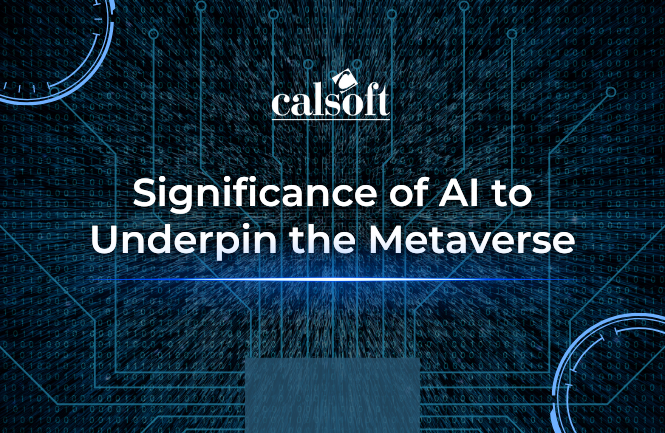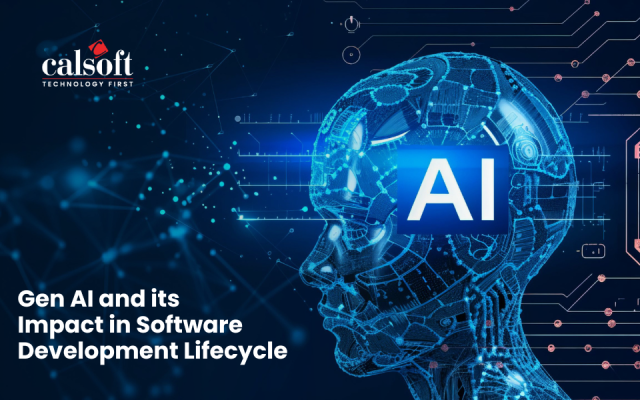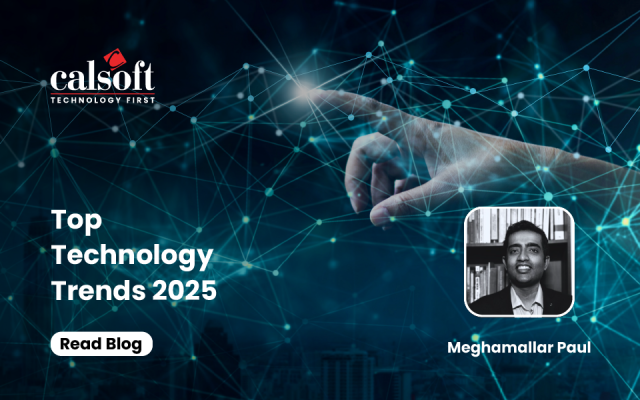As the world progress into digitalization, the line between the physical and virtual lives continues to thin out. This is happening because of the novel evolution in the digital world – the Metaverse. Every one of us have already heard about metaverse! Artificial Intelligence (AI) and Metaverse were also the hot topics discussed during the massive event Mobile World Congress (MWC) which wrapped up recently.
The world has also witnessed the change in name of the Tech giant Facebook to Meta, indicating that the Metaverse is indeed aiming to turn into the next big socioeconomic and technological advancement!
Wonder what is Metaverse? How can the AI shape the Metaverse technology?
Explore the blog to understand how AI can play a significant role in realizing Metaverse and the benefits gained by businesses in the future.
Metaverse is coined from two words – ‘Meta’ means ‘beyond’, and ‘verse’ means ‘cosmos’. The world that exists outside the physical world!
Metaverse is a virtual world that helps people to connect and interact as if in the physical world. This world comprises a 3D virtual realm such as digital avatars or copies of ourselves. Seems exciting right?
Let’s see what role AI play to shape Metaverse!
AI is the development of computer systems that can perform tasks that typically require human intelligence, such as perception, reasoning, learning, problem-solving, and decision-making. AI involves creating algorithms and computer programs that can process and analyze vast amounts of data, recognize patterns, and make predictions or decisions based on that data.
AI is a rapidly growing field with the potential to transform numerous industries and aspects of our daily lives. AI can play a significant role in the Metaverse future, making it a more inclusive technology.
• AIOps : Artificial Intelligence for IT Operations (AIOps): is a discipline that uses machine learning, analytics, and automation to enhance IT operations. AIOps can be used in the Metaverse to improve various aspects of the virtual environment, such as performance, security, and user experience. For example, AIOps can use predictive analytics to identify potential issues in the Metaverse before they occur. By analyzing data from various sources, such as server logs, network traffic, and user behavior, AIOps can identify patterns and anomalies that may indicate a potential issue. This allows IT teams to proactively address issues before they impact user experience.
Digital Twins and Avatars: AI plays a critical role in creating digital twins and avatars in the metaverse, allowing users to create lifelike representations of themselves and their surroundings, and interact with them in new and exciting ways. AI can be used to create realistic simulations of real-world objects and environments, allowing users to interact with them in the metaverse. Additionally, AI can use data from these simulations to make predictions about how objects and environments will behave in different situations, creating a more dynamic and immersive metaverse experience.
Digital twins are virtual replicas of physical objects or systems. They are used to simulate and analyze real-world scenarios and can be used to optimize performance, reduce maintenance costs, and improve safety. In the Metaverse, digital twins can be used to create virtual replicas of real-world buildings, cities, and other structures. These replicas can be used to simulate different scenarios and test how they might impact the real-world object or system.
Digital avatars are digital representations of users or other entities within the Metaverse. Avatars can be customized to reflect a user’s appearance, preferences, and personality, and they can be used to interact with other users and the virtual environment. Avatars can be used to attend virtual events, explore virtual spaces, and engage in social interactions with other users.
Inclusive User Interfaces (UI): AI has the potential to greatly improve the inclusivity of the metaverse by creating personalized, accessible, and user-friendly interfaces that cater to the needs of all users. AI can also be used to analyze user emotions in real-time and adjust the UI accordingly. For example, if a user is becoming frustrated or overwhelmed, the AI could suggest taking a break or adjust the UI to make it less overwhelming.
It is crucial to design inclusive UI that enable all individuals to participate fully and equally.
For instance, it is important to ensure that the UI is accessible to individuals with disabilities. This includes providing alternative text for images, ensuring color contrast meets accessibility standards, and providing keyboard shortcuts and alternative input methods for individuals who may not be able to use a mouse. Here are some key considerations for creating inclusive UIs in the metaverse:
- Customization: Providing users with the ability to customize the UI can help ensure that it meets their individual needs and preferences. For example, users may need to adjust font sizes or colors to make the UI easier to read.
- Clear Navigation: Navigation should be intuitive and easy to understand, regardless of a user’s level of experience with the metaverse. Providing clear labels and instructions can help guide users through the interface.
- Multilingual Support: The metaverse is a global space, so it is important to provide support for multiple languages to ensure that all users can participate fully. This includes providing translations for UI elements and text chat.
- Superior Smart Contracts: AI-enabled smart contracts in the Metaverse enhance the security of smart contracts by identifying and mitigating potential vulnerabilities. By analyzing past contract executions and identifying patterns of behavior, AI can detect malicious activities and prevent fraudulent actions from occurring.
With the above advancements, the Metaverse provides businesses with an opportunity to innovate and experiment with new products and services. AI can help businesses create new and innovative virtual experiences that meet the needs of customers. Metaverse AI can help businesses improve customer engagement, gain insights into customer behavior, increase efficiency, enhance marketing, and generate new revenue streams by offering virtual goods and services in the Metaverse, such as virtual real estate, virtual events, and virtual products.
In Brief
The intersection of AI and metaverse can enhance many industry verticals and people’s lives in the coming years. AI is significant in the Metaverse as it enables more immersive experiences, personalization, dynamic content creation, data analysis, automation, and enhanced security. As the Metaverse continues to evolve, AI will play an increasingly important role in creating more engaging and realistic virtual experiences for users.











